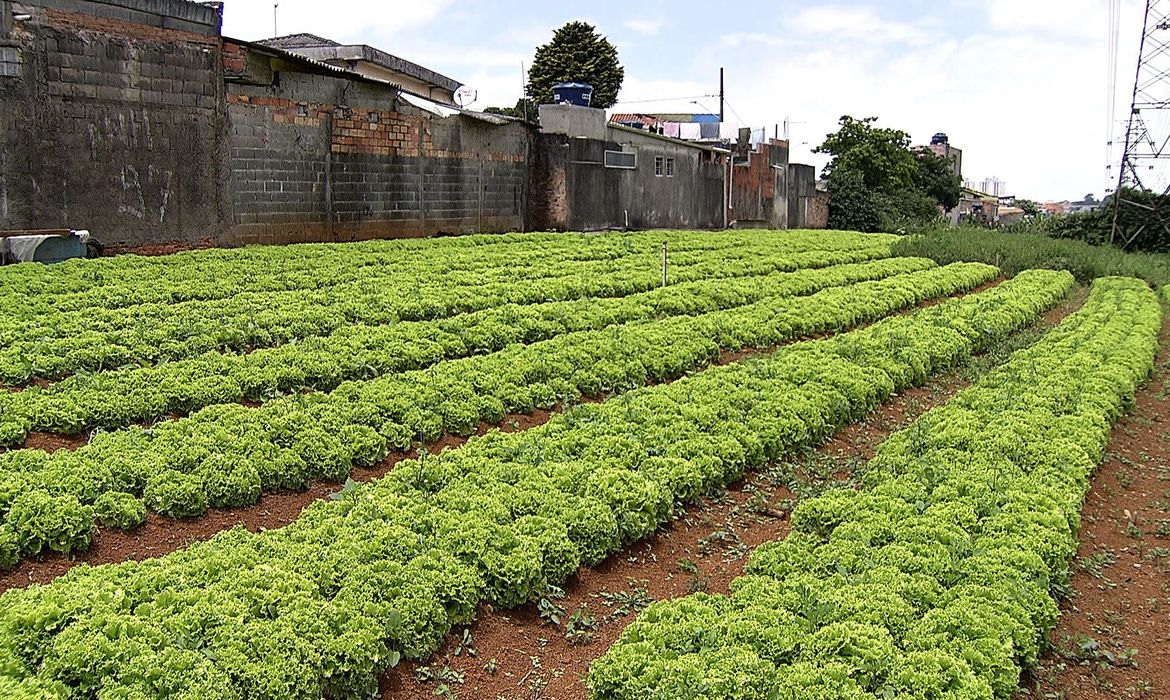RIO DE JANEIRO, BRAZIL – At first, whoever enters Marquês de Herval Street, in Vila Saúde, São Paulo, does not see anything different. But among houses and buildings, a narrow iron gate offers passage to a true oasis. The Mandalas Wood is one of the 273 vegetable gardens registered in the city of São Paulo, according to the platform Sampa Mais Rural (Sampa stands for São Paulo, “São Paulo More Rural”), of the city hall. More than the shared production between volunteers and residents, the plantations are community experiences that promote healthy eating and solidarity encounters.
“We’ve done the fair. We took broccoli leaves, chicory, serralha leaves, capuchin, which I didn’t know, but I ate its flowers, and they were delicious, and the salad was very nice. I took lemon. Just knowing that it is without pesticides is too good”, says Vilma Souza, 67, from Goiânia, but is in São Paulo to spend some time with her daughter. “This was the only way she could convince me to come. I love green, working with earth”, she says. It was Vilma’s first day at the site. The space in the Mandalas Wood is provided by the local energy company (Enel), the land’s owner.
On a strip of land that runs from one street to another, the Enel tower occupies a small area among more than 200 uncatalogued species, according to Clélia Carretero, 63, one of the creators of the five-year-old garden. “The agronomist Débora Ota, who lives next door, gave us many tips about “Pancs” – non-conventional food plants. She said: ‘plant taioba, which can be used as cabbage’. Last year we met another group that wanted to work with bricks of bio-construction, and we built this wall. Everything has a little bit of each person who lives in the neighborhood”, she says.

Sampa Mais Rural brings together agriculture, tourism, and healthy eating initiatives. On the platform’s website, you can see the location of the gardens scattered around the city.
Edilane de Souza, 33, known as Dila, has lived in an apartment next to the garden for a year. She accompanies Sueli Albano, 73, who comes to the place to enjoy the shade and the greenery. While Sueli rests, Dila helps her companions to weed, harvest food, and plant new seedlings. “I think it’s a beautiful way to help, volunteer, and help people. And I love working with the land,” she said. Clélia says that the work is done in a joint effort, and it is always necessary to spread the word so that more people can participate. “It’s like ants work. We use social networks.”
Ana Borba, 82, is the most experienced in the group. “This here is our natural healer,” says Clélia. With a machete in her hand and a lot of disposition, Ana proudly shows her accomplishments in the garden: “I planted a banana tree yesterday, from that coffee plant, I already made the powder and gave a tablespoon to each one here. I made paprika with urucum, Chinese cará is good to regulate diabetes, and with pomegranate, you improve your throat”. The tour through the garden showed that everything there had a lot of Ana’s wisdom. She says that the place is a reunion with her childhood when she lived on a farm. “I live near here, and people say I’m the garden’s watchman,” she jokes, pointing to the window of the building where she lives.
At the University of São Paulo Medical School (FMUSP), in the western region of São Paulo, the community garden is also a means of integration. “It is a place of learning. I always say that it is a very horizontal place, a great thing for a hierarchical institution, which has the figure of the professor as the holder of all knowledge. The garden is where the gardener knows more than I do about the production of many things”, explains Thais Mauad, a researcher from the Pathology Department and founder of the FMUSP community garden.
It has been in operation for eight years. “Today we supply seasonings to the Hospital das Clínicas. Every week, the nutrition team comes here to the garden, and we provide the spices: chives, parsley, thyme”, she adds. Another action related to the initiative is offering a discipline of culinary medicine. “It is precisely to show future doctors the importance of healthy food in the genesis and management of diseases,” she explains. The teacher recalls that this is a trend among medical courses because “it is known that food is in the genesis of many chronic diseases, hypertension, diabetes, and some cancers.
Thais explains that the garden is taken care of with joint efforts and the voluntary support of the community. What is produced can be harvested for one’s own use. “We are living a very sad situation of food insecurity in the country, with public policies regarding food being dismantled, so the issue of food permeates medical education,” she adds.
According to the National Survey on Food Insecurity in the Context of the Covid-19 Pandemic in Brazil, by the Brazilian Research Network on Food and Nutritional Sovereignty and Security (Rede Penssan), in the last months of 2020, 19 million Brazilians went hungry, and more than half of the households in the country faced some degree of food insecurity.
With information from Agência Brasil

